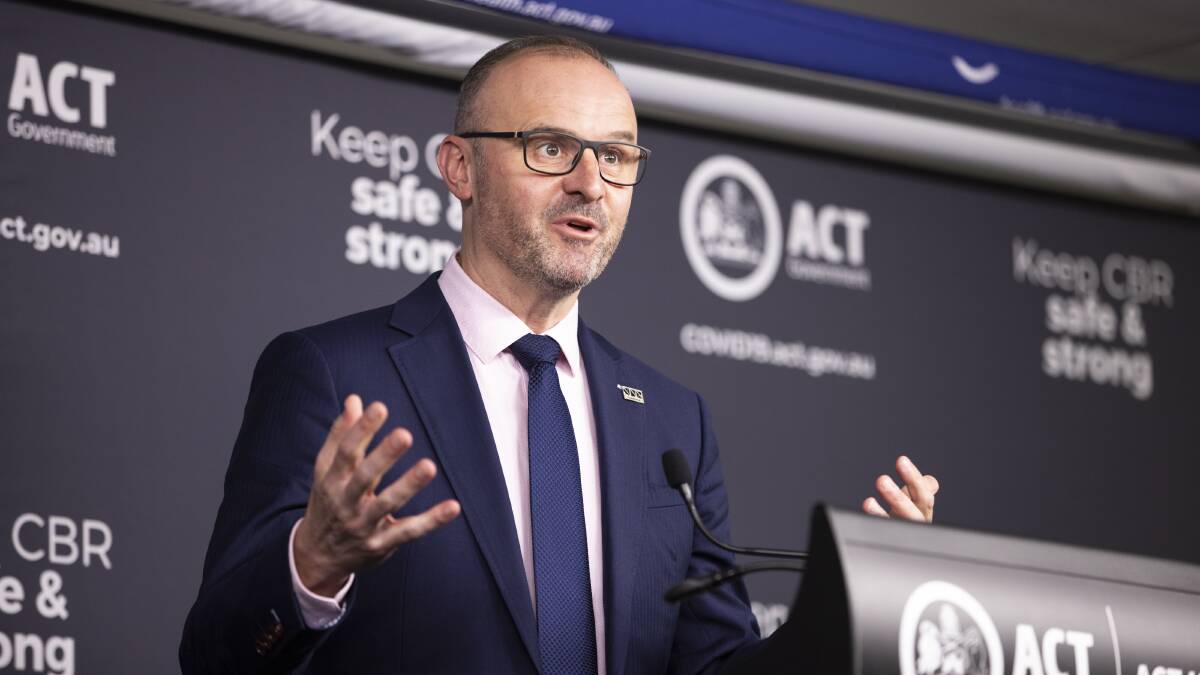
The ACT government is still unable to confirm whether students will return to the classroom when the first term begins in less than a fortnight's time, amid concerns about a shortage of rapid antigen tests.
ACT Chief Minister Andrew Barr on Thursday said the government was still planning for students to return, but the arrangements would be unveiled when plans were finalised.
"Our schools will always prioritise the safety of students and staff, while continuing to provide the best possible education to our children and young people," Mr Barr said in a statement after Thursday's national cabinet meeting.
A decision on whether ACT students will return to the classroom or be required to learn remotely at the start of the term is still expected sometime this week.
After the meeting, Prime Minister Scott Morrison announced the Commonwealth would jointly fund rapid antigen tests on an evenly split basis for surveillance testing programs in schools if states and territories determined the programs were necessary, but the states and territories would need to find the rapid antigen tests.
Mr Barr welcomed the funding arrangement, but did not commit to a surveillance testing program for school staff and students in the territory.
"The ACT government welcomes this contribution from the Commonwealth that will make more tests available for more people. The ACT will continue to utilise a combination of PCR and rapid antigen testing as part of our pandemic response," Mr Barr said.
A surveillance testing program that would require public school students to complete two rapid antigen tests each week would need more than 116,000 test kits a week, or around 1.2 million tests for each 10-week term.
Even more rapid test kits would be required to include school teachers and staff in a surveillance testing program.
The ACT had received only a small fraction of its rapid antigen test orders on Wednesday, and health authorities were unsure when more testing kits will arrive.
The territory government had ordered 1.6 million rapid antigen tests, but by Wednesday only 62,000 had been delivered.
About 44,000 rapid antigen tests have been issued to people at the ACT's government COVID-19 testing clinics.
"Integrating the distribution of [rapid antigen tests] at our COVID-19 testing clinics has significantly reducing the wait times for PCR tests at both the Mitchell and Garran. The use of [rapid antigen tests] is now a part of our ongoing testing strategy," Mr Barr said.
"There are now 23 types of approved [rapid antigen tests], including some that will be produced domestically, this will help with supply into the future."
Opposition education spokesman Jeremy Hanson said students should return to face-to-face learning at the beginning of term 1.
"If children are not going back into the classroom, it's a stark failure of government on a number of levels," Mr Hanson said.
Mr Hanson said if the ongoing shortage of teachers or the lack of rapid antigen tests prevented children from going back to school, then the blame would be on the ACT government.
"The government should be taking every action to get children back to school," he said.
"Any lack of [rapid antigen tests] in [the] ACT falls squarely on the ACT government's shoulders."
Mr Hanson said parents would have mixed views if term 1 began with remote learning and said some parents "are adamant children should be returning but there are some that are nervous".
"Parents have got to manage this in terms of their own work and looking after kids," he said.
The teachers' union has already warned there will not be enough educators to keep schools open for in-person learning in term 1.
Australian Education Union ACT secretary Patrick Judge said the lack of relief teachers to cover for sick or isolating teachers was the biggest issue schools were facing.
"Indications are we need to be preparing for the possibility of remote learning at the very least," Mr Judge said earlier this week.
"It's going to be very challenging for schools to continue in person."







